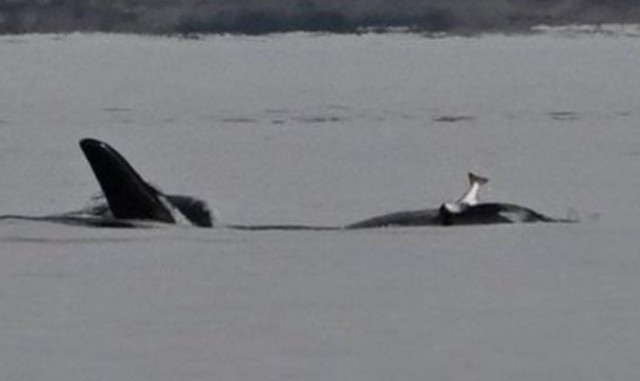Why are orcas wearing dead salmon on their heads again? Experts puzzled by revival of odd trend
New observations from photographers and researchers confirm that orcas are once again sporting fish as headgear

A group of orcas off the west coast of North America has resurrected a peculiar behaviour not seen since the late 1980s: wearing a single dead salmon on their heads, much like a hat. The practice, which first emerged in 1987, has baffled experts, who are unsure why the orcas would engage in such a fashion statement – or why the trend has made a mysterious return nearly 40 years later.
The initial "salmon hat" craze began when a female orca in Puget Sound, located in the northeast Pacific, was spotted carrying a dead fish on her nose. The behaviour quickly spread to other pods in the region, suggesting there was something compelling about it. However, the trend was short-lived, disappearing as abruptly as it had started by 1988.
Now, new observations from photographers and researchers confirm that orcas are once again sporting fish as headgear, though the reasons behind the revival remain unclear.
"It's not clear if the whales are showing off, or storing food to eat later," said Deborah Giles, science and research director at the nonprofit Wild Orca. Orcas are known to store spare food under their pectoral fins, and some researchers speculate that the 'fish hats' could be an adaptation of this behaviour.
Alternatively, the phenomenon may be a cultural expression or a form of play among the orcas. "It could simply be whimsical absurdity that amuses the animals on some playful level," said Giles. Some have suggested that the sensation of wearing a hat could feel enjoyable for the orcas, much like the behaviour seen in humpback whales, which have been observed wearing seaweed "hats."
Given that orcas can live for up to 90 years, it’s possible that some of the same whales from the original 1980s trend are involved in the revival, leading some to speculate that the practice has simply come back into fashion. "Maybe it was just time for a salmon hat revival," said Giles.
While scientists are still stumped for an explanation, efforts are underway to better understand the behaviour. Plans are being made to use drones to monitor the orcas and determine whether the 'hats' serve any specific purpose. Orcas are highly intelligent animals, known for their complex communication and group hunting strategies. Such novel behaviours are not entirely surprising, and could be part of a larger cultural exchange between different pods.
"Over time, we may be able to gather enough information to show that, for instance, one carried a fish hat for 30 minutes or so, and then ate it," Giles explained to New Scientist.
As researchers continue to study this remarkable trend, further observations may eventually uncover the hidden details that reveal the true purpose of the orca’s fashionable fish headgear.



















COMMENTS
Comments are moderated and generally will be posted if they are on-topic and not abusive.
For more information, please see our Comments FAQ